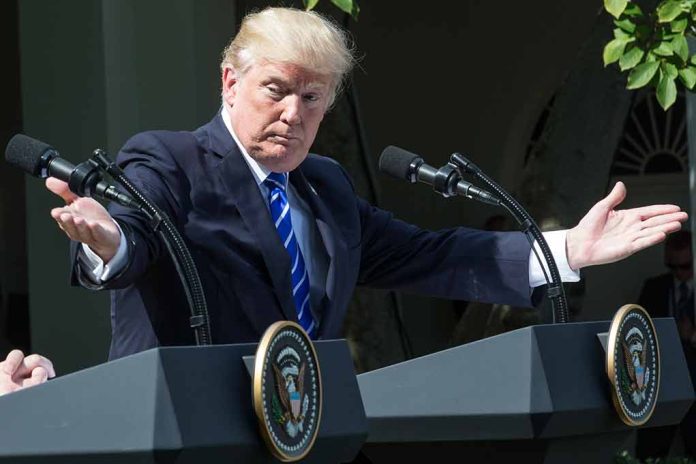
Thousands of Afrikaners in South Africa seek refugee status in the United States after President Trump extends an unprecedented offer to “victims of unjust racial discrimination,” amid growing tensions over land seizures and concerns of violence against white farmers.
Key Takeaways
- President Trump issued an executive order offering refugee status to white Afrikaners in South Africa, with close to 70,000 South Africans expressing interest in resettlement.
- The U.S. Embassy in Pretoria has begun scheduling interviews with applicants through “Mission South Africa,” established specifically for Afrikaner resettlement.
- Trump’s actions have emboldened secessionist groups like the Orania Movement, which seeks U.S. recognition for autonomy within South Africa.
- South African President Cyril Ramaphosa opposes secessionist movements and maintains that no land has been seized despite signing a bill allowing land expropriation without compensation.
- Diplomatic relations have deteriorated, with the U.S. cutting aid to South Africa and expelling its ambassador.
Thousands Apply for Trump’s Refugee Program
The Trump administration has begun processing refugee applications from Afrikaners in South Africa following an executive order that classified them as “victims of unjust racial discrimination.” According to the South African Chamber of Commerce in the USA (Saccusa), approximately 70,000 South Africans have registered interest in the program, with most applicants being between 25-45 years old with two to three dependents. The U.S. Embassy in Pretoria confirmed receipt of the list of interested individuals and has started scheduling interviews with applicants.
The executive order established “Mission South Africa” to facilitate Afrikaner resettlement in the United States. A memo sent from the embassy in Pretoria to the State Department outlined plans to “propose long-term solutions, to ensure the successful implementation of the president’s vision for the dignified resettlement of eligible Afrikaner applicants.” This unprecedented move targets a specific ethnic group within a democratic country, raising questions about the criteria for refugee status.
How could we be expected to go to South Africa for the very important G20 Meeting when Land Confiscation and Genocide is the primary topic of conversation? They are taking the land of white Farmers, and then killing them and their families. The Media refuses to report on this.… pic.twitter.com/GXiVOI5vZD
— Donald J. Trump Posts From His Truth Social (@TrumpDailyPosts) April 12, 2025
Rising Tensions Over Land Reform
The refugee offer comes amid heightened tensions over land reform in South Africa. President Cyril Ramaphosa recently signed a bill allowing land seizure without compensation for “public interest,” which has alarmed many white landowners. While South Africa’s white minority, approximately 8% of the population, still holds most privately owned land and wealth despite the end of apartheid over 30 years ago, the prospect of land expropriation has heightened concerns among Afrikaners about their future in the country.
President Ramaphosa has countered these claims, stating that no land has been seized and that the bill is designed to ensure “public access to land in an equitable and just manner as guided by the constitution.” South African officials have repeatedly emphasized that the country remains peaceful, with Fikile Mbalula of the African National Congress calling it “madness to build refugee centers in a peaceful country like South Africa.”
Secessionist Movements Gain Momentum
Trump’s refugee offer has emboldened secessionist groups within South Africa. The Orania Movement, an enclave in the Northern Cape province, sees the U.S. involvement as support for their autonomy goals. Joost Strydom, leader of Orania, has appealed directly to the Trump administration with the message “Help us Here,” suggesting that U.S. recognition of their self-governance would be preferable to resettlement abroad.
Similarly, the Cape Independence Advocacy Group has been lobbying in Washington for a referendum on the secession of the Western Cape province, where the opposition Democratic Alliance holds power. South African government spokesperson Vincent Magwenya has pushed back against these movements, emphasizing that they represent a minority view. President Ramaphosa has consistently opposed secessionist efforts, stressing the nation’s commitment to unity since Nelson Mandela’s vision of a “rainbow nation.”
Deteriorating Diplomatic Relations
U.S.-South Africa relations have deteriorated significantly since Trump took office. The diplomatic rift widened with the U.S. expelling South Africa’s ambassador, whom Secretary of State Marco Rubio labeled a “race-baiting politician.” The Trump administration has also frozen aid to South Africa, further straining ties between the nations that were once closer allies in the post-apartheid era.
The situation continues to evolve, with both governments making public statements that reflect their diverging positions. For the thousands of Afrikaners who have applied for refugee status, uncertainty remains about whether their applications will be approved and what awaits them should they relocate to the United States. Meanwhile, South African officials work to counter the narrative that their country is unsafe for any of its citizens, regardless of race.
Sources:
South Africa reels over Trump’s offer of refugee status to white Afrikaners
Almost 70,000 South Africans interested in US asylum
‘Mission South Africa’: How Trump Is Offering White Afrikaners Refugee Status



